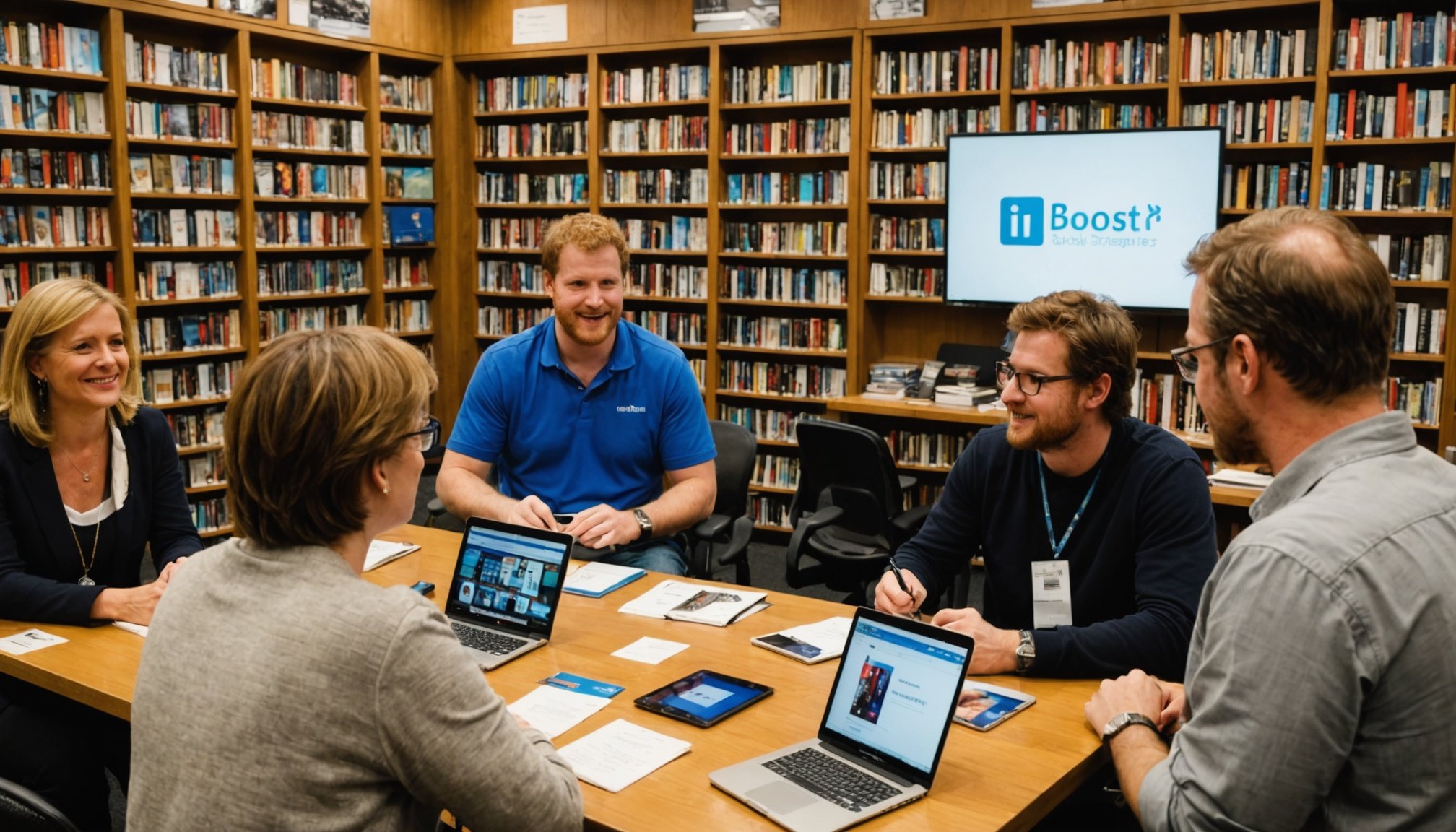Understanding Social Media’s Impact on Bookstore Engagement
Social media plays a transformative role in promoting bookstore events, by broadening their audience through strategic targeting. Platforms like Facebook, Instagram, and Twitter enable bookstores to reach a wider demographic, harnessing algorithms to connect with potential attendees interested in literary events. This functionality not only increases the outreach but also amplifies the overall social media engagement.
Bookstores leverage social media to build community connections and foster author interactions. By hosting online discussions and promoting author visits, they create interactive spaces that engage readers beyond the confines of store walls. Platforms such as Facebook Groups offer avenues for ongoing dialogue and relationship-building, transforming a one-time event into an ongoing community engagement tool.
Also read : Mastering Video Walkthrough Tactics for UK Real Estate Agents: Boost Client Interaction and Engagement
Online platforms empower bookstores to conduct audience-specific targeting, ensuring event promotions reach individuals most likely to be interested. The ability to interact in real-time via Twitter or share visually compelling content through Instagram Stories helps maintain a lively and engaged audience. Ultimately, these tools and strategies culminate in deeper community bonds and a more vibrant bookstore culture, enriched by consistent and dynamic author-reader interactions. This vibrant social media presence places bookstores at the heart of community-driven book culture, an invaluable position as consumer behaviours evolve.
Key Social Media Platforms for Author Events
Social media platforms play a vital role in enhancing the effectiveness of author events and bookstore events. Each platform offers unique opportunities for engagement and promoting events to specific audiences.
Also read : Unlocking Peak Engagement: Premier Tactics for UK Fitness Studios to Highlight Classes on Instagram Stories
Utilizing Facebook for Event Promotion
Facebook allows bookstores to create and promote events efficiently. Craft compelling group posts and utilize the event creation tool for visibility. Authors can leverage Facebook Groups to foster direct interactions with readers. A notable success story is UK author Sarah Waters, who utilised her fan page to orchestrate a successful virtual meet-up.
Instagram Best Practices
Visual storytelling using Instagram can captivate potential attendees. Employ stories and reels for dynamic, real-time engagement. Collaborations with literary influencers expand reach further; consider an influencer who appeals to the bookstore’s niche audience. This generation of vibrant content attracts more attendees to author interactions.
Leveraging Twitter for Real-Time Interaction
Twitter’s real-time capabilities should not be underestimated. Events can rapidly gain traction through trending hashtags. Live tweeting during events enhances real-time reader engagement. Past events such as the UK Book Fair effectively used hashtags to foster lively discussions, significantly boosting social media engagement.
Professional Networking on LinkedIn
LinkedIn is perfect for building professional connections and promoting events within the industry. Bookstores and authors can use it to widen their professional reach, as illustrated by successful networking during the London Literary Festival, connecting numerous industry professionals.
Developing Engaging Content for Social Media
Creating compelling Social Media Content is paramount for generating robust Social Media Engagement and enhancing Author Interactions. Diverse content types, such as videos, polls, and discussions, cater to different audience preferences and maintain engagement. For instance, videos provide dynamic storytelling opportunities, while polls invite audience participation, turning passive followers into active participants.
Engagement Strategies revolve around crafting messages that resonate with the bookstore’s audience. Tailoring content to reflect the community’s literary interests fosters a deeper connection. A well-timed poll asking followers about their favourite book genres, followed by a themed event, transforms casual scrolling into meaningful interactions.
Feedback plays a vital role in refining content. By closely analysing reader responses, bookstores can adjust their strategy, ensuring that they consistently meet audience expectations. Audience feedback is not merely data; it’s an invaluable tool for shaping future content.
Audience Targeting is further enhanced by using social media analytics to fine-tune the targeting strategy. This ensures promotions reach those genuinely interested, fostering a vibrant and engaged community. By understanding the demographic nuances, bookstores can strategically push content to maximise relevance and outreach, creating a magnet for a thriving literary hub.
Implementing Effective Social Media Campaigns
Effective social media campaigns hinge on a robust social media strategy that meticulously plans and measures every step. When organizing author events, it’s crucial to set clear, measurable objectives. Determine what you aim to achieve: increased attendance, enhanced engagement metrics, or elevated author visibility. These objectives will guide your campaign from inception through to execution.
Step-by-Step Campaign Planning
Begin with defining your goals, then allocate a realistic budget and resources to support your vision. This may involve enlisting graphic designers for captivating visuals or partnering with influencers for broader reach. After setting your foundation, draft a detailed timeline for your social media activities. Map out when to post announcements, updates, and teasers, ensuring a consistent presence.
Measuring Engagement and Success
Measuring the success of your initiatives is as vital as the execution itself. Track engagement metrics such as likes, shares, comments, and event attendance. Utilize analytics tools to monitor which strategies resonate most with your audience. Paying close attention to this data allows for real-time adjustments, optimizing your approach. By refining your tactics based on factual insights, your campaign can effectively adapt and evolve, increasing the likelihood of a successful outcome.
Case Studies of Successful UK Author Events
Transforming UK author events into triumphs requires a keen understanding of social media strategies. Notably, UK bookstores have revolutionised their approaches, creating standout success stories. These success stories highlight the potential of well-crafted author events in enhancing engagement and reach.
Leveraging Strategic Social Media
One remarkable example is an event hosted by the London-based Daunt Books, which effectively used Instagram for their author talks. By integrating visually appealing content and partnering with local literary influencers, they managed to increase attendance significantly. The event’s Instagram Stories and live sessions offered real-time engagement, promoting author-reader interactions even beyond physical attendance.
Harnessing Community Support
Waterstones, a prominent UK bookstore chain, exemplifies success through community engagement. They creatively employed Facebook Groups to kickstart discussions around upcoming bookstore events, allowing readers to influence schedules and session topics. This novel approach fostered deeper connections and sustained social media engagement.
Emphasising Twitter Engagement
A notable campaign by the Hay Festival involved a dynamic Twitter strategy. By utilising event-specific hashtags, they encouraged lively conversations throughout the event. This approach not only increased visibility but also strengthened engagement as attendees and authors interacted in real-time, sharing insights and experiences.











